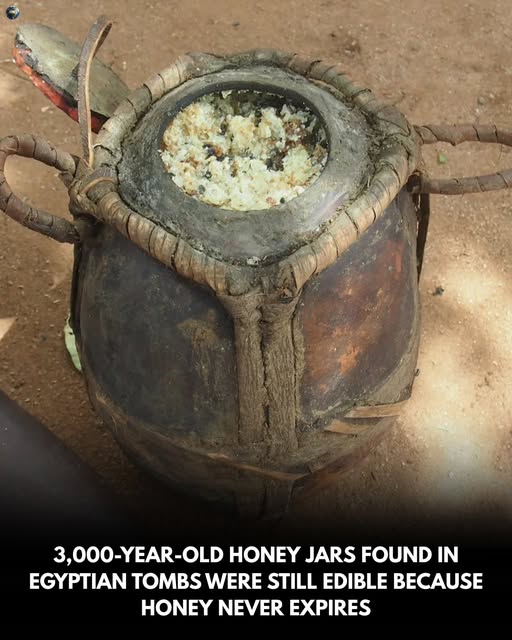The captivating headline 3,000-Year-Old Honey Found in Egyptian Tombs Was Still Edible — Because Honey Never Expires is a historical fact.
The captivating headline 3,000-Year-Old Honey Found in Egyptian Tombs Was Still Edible — Because Honey Never Expires is a historical fact. Archaeologists have indeed discovered perfectly preserved honey in ancient Egyptian burial sites, including the tomb of King Tutankhamun. The honey, sealed in jars, was found to be completely intact and still edible, a testament to its incredible and unique chemical composition. This amazing property meant that the very same substance consumed by ancient Egyptians over three millennia ago could, in theory, be consumed today.

The reason honey never spoils is a fascinating scientific reality. Its longevity is due to a combination of several factors. First, honey has an extremely low moisture content, a property known as being hygroscopic. This lack of water creates an environment in which yeast and bacteria cannot grow. Second, honey is highly acidic, with a pH of around 3.5 to 4.5, a level that is hostile to most microorganisms. Finally, bees have a stomach enzyme that creates hydrogen peroxide as a byproduct. This enzyme gives honey a mild antiseptic property, further ensuring its long-term preservation.

The discovery of the edible honey is more than just a historical curiosity; it is a tangible link to the distant past. The ancient Egyptians knew of honey’s remarkable properties and used it not only as a food source but also as a preservative for food and a medicinal treatment for wounds and burns. Placing it in tombs was a symbolic act, an offering of a precious and eternal food for the afterlife. This small, sweet find provides a direct and awe-inspiring connection to a civilization that lived thousands of years ago.
